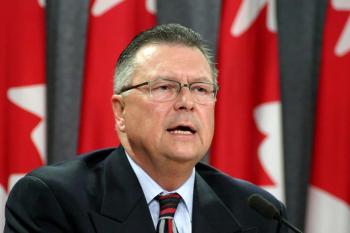In June 2015, the Conservative government passed the Anti-Terrorism Act, which is also known as Bill C-51. It gave sweeping new powers to Canada’s spy and security agencies. For example, the legislation broadened the definition of "security" in a way which could criminalize peaceful protests. It also permitted agents of the Canadian Security Intelligence Service to disrupt events preemptively rather than being limited to monitoring them.
Other countries, including the U.S., have at least some semblance of oversight on their spy agencies. In Canada MPs and Senators are mostly kept in the dark. As well, the existing Security Intelligence Review Committee (SIRC) is supposed to provide oversight but it is a tame agency which lacks investigative powers and is under-staffed.
Bill C-51 and beyond
Bill C-51 was opposed by the Green Party, the Bloc Québecois and the NDP, which mounted a filibuster in Parliament. The Liberals under Justin Trudeau chose to support the legislation. But in the 2015 federal election, they promised to repeal the bill's "problematic elements" and introduce new legislation that would strengthen parliament's oversight.
Fifteen months after the election, Bill C-51 remains in place, and one assumes that spy and law enforcement agencies are making use of their enhanced powers. Granted, Trudeau has appointed veteran MP Ralph Goodale as public safety minister, giving him the task of delivering on election promises. In September 2016, Goodale launched a consultation on national security, which ended on Decemeber 1st.
The government has also introduced -- but not yet passed -- legislation that would establish a new security and intelligence committee composed of parliamentarians. The proposed legislation, however, is rather weak. The committee would report to the prime minister rather than to parliament, and cabinet ministers could block any investigation into an issue or activity concerning their department simply by claiming a risk to national security.
Security and civil liberties
So it's high time for Canadians to have an adult conversation about the trade-offs between security and the civil liberties enshrined in our Charter of Rights and Freedoms. Previous governments spied for decades on thousands of citizens: Communists, trade unionists, social democrats, separatists, homosexuals and students, not to mention environmental, Indigenous and church activists. They also planted informants and, sometimes, provocateurs within groups that the government deemed suspicious -- a practice that continues to this day.
Meanwhile, the steaming of envelopes in order to read letters secretly has been replaced by the exponentially more intrusive invasion of privacy made possible by digital technology.
American whistleblower Edward Snowden proved that the National Security Agency in the U.S. has scooped up unimaginable amounts of data on its citizens and saved it. This mainly involved harvesting cellular and Internet records called metadata. Snowden's information showed that Canada’s spy agencies were engaged in similar practices and in sharing information about our own citizens with the spy agencies of allied countries.
Needles and haystacks
Of course, we used to believe that invasive surveillance was restricted to totalitarian regimes. But today, many people in our increasingly illiberal democracies have been convinced that we must collect information on millions of individuals in order to protect ourselves against terrorists, even if they are few in number. "Without the haystack," the saying goes, "we cannot find the needle."
Indeed, we are all the haystack, but that doesn’t mean that we can't limit the search.
This piece was published in somewhat shorter form with the United Church Observer on January 19, 2017.
Like this article? Please chip in to keep stories like these coming.
Image: Art Babych. Used with permission.




Comments
Do
Don't